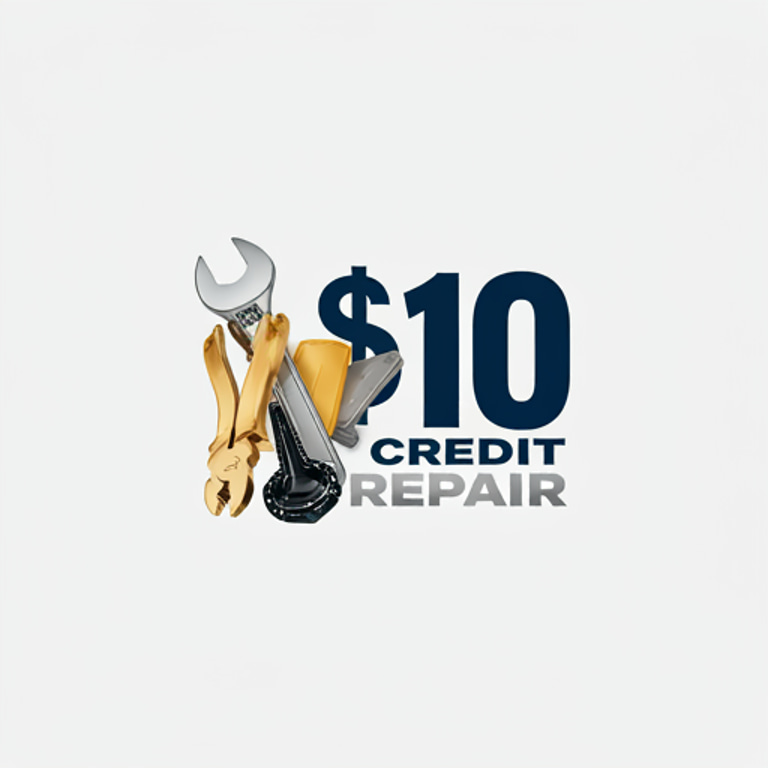Buying your Dream Home
Financing a luxury home
UNDERSTANDING CREDIT SCOREHOME BUYINGHOME MORTGAGECREDIT REPAIR


The dream of owning a home is a big one, and setting your sights on a $500,000 property is exciting! But what does it really take to make that dream a reality? It's more than just finding the perfect house; it involves understanding your financial landscape. Let's break down the key factors, from your credit score to income and loan types.
The Credit Score Factor: Your Golden Ticket
Your credit score is arguably one of the most significant factors influencing your ability to secure a mortgage and, crucially, the interest rate you'll receive. A higher credit score signals to lenders that you're a responsible borrower, making them more willing to offer favorable terms.
Minimum Credit Score: While it's possible to get a mortgage with a credit score as low as 500 (for FHA loans), aiming much higher is strongly recommended for a $500,000 home. Generally, for conventional loans, you'll want a score of 620 or higher, and ideally 700+ to access the best interest rates.
Loan Types and Their Requirements:
Let's explore some common mortgage options:
Conventional Loan: The minimum credit score is generally 620 or higher. Estimated interest rates as of April 2025 range from 6.5% to 7.5%. The minimum down payment can be between 5% and 20%. Typical loan terms are 15, 20, or 30 years. Estimated closing costs are between 2% and 5% of the loan amount.
FHA (Federal Housing Administration) Loan: The minimum credit score can be as low as 500 with a higher down payment, or 580 or higher for a 3.5% down payment. Estimated interest rates as of April 2025 range from 6.25% to 7.25%. The minimum down payment is between 3.5% and 10%. Typical loan terms are 15, 20, or 30 years. Estimated closing costs are between 2% and 5% of the loan amount, plus upfront and annual Mortgage Insurance Premiums (MIP).
VA (Department of Veterans Affairs) Loan: The minimum credit score is typically 620 or higher. Estimated interest rates as of April 2025 range from 6.0% to 7.0%. There is often no minimum down payment (0%). Typical loan terms are 15, 20, or 30 years. Estimated closing costs are between 2% and 5% of the loan amount, plus a funding fee.
USDA (US Department of Agriculture) Loan: The minimum credit score is typically 620 or higher. Estimated interest rates as of April 2025 range from 6.25% to 7.25%. There is often no minimum down payment (0%). The typical loan term is 30 years. Estimated closing costs are between 2% and 5% of the loan amount, plus a guarantee fee.
Lowest Interest Rate Loan Type: Historically, VA loans often offer the lowest interest rates for eligible veterans and active-duty military personnel.
Highest Interest Rate Loan Type: Loans for borrowers with lower credit scores, regardless of the loan type, will generally have the highest interest rates to compensate for the increased risk perceived by lenders.
The Down Payment Puzzle:
The minimum down payment varies significantly by loan type, as you can see above. While 0% down options exist (VA, USDA for eligible borrowers), a larger down payment can:
Reduce your monthly mortgage payments.
Help you avoid Private Mortgage Insurance (PMI) on conventional loans (typically required with less than 20% down).
Make your offer more attractive to sellers.
Income Needed: A State-by-State Snapshot (General Estimates)
The income required to comfortably afford a $500,000 home varies dramatically based on property taxes, insurance costs, and the overall cost of living in each state. It's crucial to consider the "28/36 rule," which suggests spending no more than 28% of your gross monthly income on total housing costs (including mortgage payment, property taxes, and insurance) and no more than 36% on total debt (including housing costs plus other debts like car loans and credit cards).
While providing exact figures for every state is beyond the scope of this article, you can expect to need a significantly higher income in states with high property taxes and cost of living (e.g., California, New Jersey, Massachusetts) compared to states with lower costs (e.g., Mississippi, Arkansas, Indiana). A general range for comfortably affording a $500,000 home could fall between $100,000 to $175,000+ gross annual income, depending heavily on your down payment, other debts, and the specific location. It's essential to use online mortgage affordability calculators specific to your state and consult with a mortgage professional for personalized guidance.
Loan Terms: Short vs. Long
The most common loan terms are 15, 20, and 30 years.
Shorter terms (15 or 20 years) mean higher monthly payments but you'll pay less interest over the life of the loan and build equity faster.
Longer terms (30 years) result in lower monthly payments, making the home more immediately affordable, but you'll pay significantly more interest over the long run.
Closing Costs: Budgeting Beyond the Down Payment
Closing costs are the fees and expenses associated with finalizing your mortgage. These can include:
Appraisal fees
Loan origination fees
Title insurance
Escrow fees
Recording fees
Taxes
Expect closing costs to be roughly 2% to 5% of the total loan amount. For a $500,000 home with a $400,000 loan, this could range from $8,000 to $20,000.
Preferred Debt-to-Income Ratio (DTI): Staying in Control
Lenders will also look at your debt-to-income ratio (DTI). This is the percentage of your gross monthly income that goes towards paying your monthly debt obligations.
Ideal DTI: Lenders generally prefer a total DTI (including the new mortgage payment) below 36%. A housing DTI (just your mortgage payment, property taxes, and insurance) below 28% is also a good target.
Documents Needed for Loan Application:
Be prepared to provide a range of financial documents, which can vary slightly depending on the lender and loan type, but generally include:
Proof of income (pay stubs, W-2s, tax returns)
Bank statements
Investment account statements
Identification (driver's license, social security card)
Credit report (the lender will typically pull this)
Information about other debts (loan statements, credit card statements)
The Cost Difference: Good Credit vs. Bad Credit
The difference in the cost of purchasing a $500,000 home with good credit versus bad credit can be staggering. Borrowers with lower credit scores will face:
Significantly higher interest rates: This translates to hundreds of thousands of dollars more paid in interest over the life of the loan.
Higher down payment requirements: Some loan programs may require a larger down payment for borrowers with lower scores.
Higher fees: Lenders may charge higher origination fees or other costs to offset the perceived risk.
Difficulty getting approved: You might simply be denied a mortgage if your credit score is too low.
Average Homeowners Insurance and Maintenance Costs:
Homeowners Insurance: The average annual cost of homeowners insurance can vary widely based on location, coverage amounts, and the age and condition of the home. Nationally, you might expect to pay anywhere from $1,200 to $2,500 per year, or more.
Home Maintenance: Experts often recommend budgeting 1% to 3% of the home's value annually for maintenance. For a $500,000 home, this could range from $5,000 to $15,000 per year.
Unlock Your Homeownership Dream with Ten Dollar Credit Repair's eBook!
The path to owning your dream home starts with a solid credit foundation. Our Ten Dollar Credit Repair eBook provides you with the knowledge and strategies you need to understand, manage, and improve your credit score. Learn proven techniques to:
Identify and dispute errors on your credit report.
Understand the factors that impact your credit score.
Develop effective debt management strategies.
Build a positive credit history.
By taking control of your credit today with the guidance in our eBook, you can significantly increase your chances of qualifying for a $500,000 home with the lowest possible interest rate, saving you thousands of dollars over the life of your mortgage. Don't let a less-than-perfect credit score stand in the way of your homeownership dreams. Invest in your future – get your copy of the Ten Dollar Credit Repair eBook today!
We recommend you know what your FICO score is before you start! We recommend MyScoreIQ: Click the link to find out what your TRUE FICO Score is: https://www.myscoreiq.com/get-fico-max.aspx?offercode=43214048
